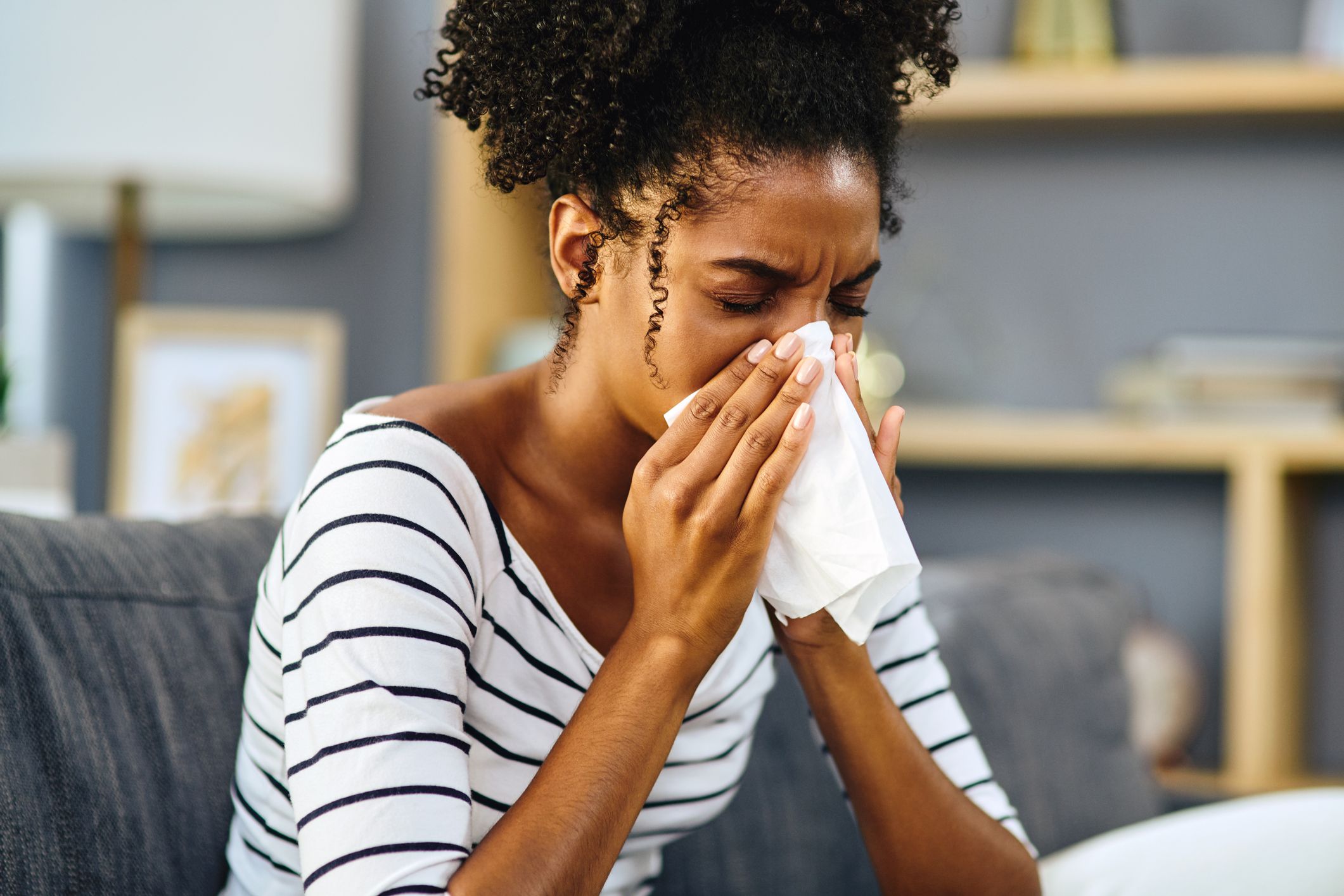
As the weather gets colder and winter approaches, so does cold and flu season. For many people, this time of the year is dreaded because it means dealing with the uncomfortable symptoms of various types of infections. However, this time there is an added concern – the possibility of contracting COVID-19.
Fever, cough, sore throat, difficulty breathing, fatigue, muscle aches, and loss of appetite are all symptoms of both COVID and cold/flu. But with COVID-19, these symptoms can be much more severe and can often lead to hospitalization or even death.
However, experts have established a minimal link with these conditions and COVID-19, saying that though not all cold and flu infections are COVID- related this season, as the weather has a great role to play in the prevalence of cold and flu presently, but the possibility of a COVID-19 infection can also not be wished away. Ultimately, they recommended vaccination and proper laboratory test for any flu-like infection, as a means of getting patients best outcome.
Are there Similarities between Covid, Cold, and Flu Symptoms?

With the outbreak of COVID-19, many people are wondering what the difference is between cold and flu symptoms. In order to understand the similarities and differences between covid, cold and flu symptoms, it is important to know what they are.
Here is a breakdown of all three:
– Covid symptoms include: fever, chills, body aches, headache, sore throat, new loss of taste or smell
– Cold symptoms include: runny nose, congestion, sneezing
– Flu symptoms include: fever, chills, body aches, headache, sore throat
As you can see, there are some similarities between cold and flu symptoms, but there are also some key differences. For example, Covid-19 can cause a new loss of taste or smell, while colds and flu generally do not. Additionally, colds are more likely to cause a runny nose and congestion, while flu symptoms are more likely to include a fever and chills.
Experts also say that there is only a minimal link between the two Covid, Flu and Cold. They attribute the rise in cases to other factors such as weather changes and increased travel. They advise people to take precautions against all three illnesses by they say that the best way to protect you against all three is to get vaccinated.
However, they say that the best way to protect yourself against all three is to get vaccinated.
According to Kehinde Adekola, a nursing officer from Lagos University Teaching Hospital, she said, “We know definitely well that COVID is still in the air and even though a lot of people don’t use face mask anymore and lots of countries have lifted their ban on travelling. There are still Covid rules and guidelines everywhere regardless. But for this month of September, the weather is usually very cold, and even now, the rate at which people come down with cold and flu is alarming.
“It is not just having the symptoms of Covid, the thing is that, we have all in one way or the other been exposed to the virus. So, because the virus is air borne, symptoms like flu and cold would be aggravated in that sense. So, it is just mere speculation and not founded upon research. People should not conclude.”
Also speaking with a pharmacist from Medix Pharmaceutical Stores, Pharm. Abideen Salami, he disclosed that most pharmacies experience more sales in cold and flu medications during this season, which is an indication that flu is a natural phenomenon during this time of the year.
He said “I feel it is just cold and flu that is in the air and not COVID at all. Knowing full well that this August and September period is meant for lesser rain. The season is known for more cold and flu infections as most community pharmacists tend to sell more of cold and flu drugs.
“By the time a patient lists out the symptoms, though we do not have a lab here but we have partnership with other labs. We send them to those labs and get tested and you know visibly that it has every bit of cold and flu.
“So far, for the past three months there have been so many symptoms of cold and flu”.
Different treatments available for Covid, Cold, and Flu
There is no specific treatment for Covid-19. Treatment focuses on relieving symptoms and supporting the respiratory system.
If you have cold, flu, fever, shortness of breath, or other severe symptoms, you should see a doctor right away. If your symptoms last more than a week, you should also see a doctor. If you have underlying health conditions, you may need to be hospitalized.
When asked about what type of drugs suitable for patients having cold and flu, Pharm. Salami said – “It depends on the patients’ body chemistry and the normal thing is to send the patient to run some tests after which we then know what to do and what drugs to prescribe for them.
“For malaria and flu, we prescribe Augumentin, Lonart, and Amartem. But for cold we prescribe Artifed.
“The major cause of cold is allergy. Everyone immune system is quite different from each other. So we can be in the same place and our bodies give different reactions because my own immune system can be stronger than yours.
“So, we recommend vitamin C always to help boost the immune system and we give anti-allergy drugs like artifed, procold and all. Between two days, depending on the immune system of the person, they are fine.”
How to avoid the spread: 4 steps to successful prevention
As it is that time of the year when cold and flu is in full swing, you might be wondering how to avoid getting the infection. The best way to avoid it is to avoid contact with people who have them. But, since that is not always possible, there are other ways you can reduce your risk of infection.
These are four steps to successful prevention:
1) Clean hands:
Wash your hands often with soap and water, especially after touching your face, nose, or eyes, after coughing or sneezing, and before preparing food for others. Alcohol-based hand sanitizers are also effective at killing germs on hands.
2) Cover Your Mouth:
Cover your mouth when you cough or sneezes to avoid spreading germs from your mouth onto anything you touch (or anyone else). Cough into a tissue instead of your hand if possible. Throw the tissue away.
3) Avoid touching your eyes, nose or mouth to avoid cold and flu:
The cold and flu season is in full swing, but you can avoid getting sick if you put your hands away from your face. It’s a hard habit to break, but it is well worth it because we are all exposed to germs at the end of the day.
According to a study published in the journal Microbiome, those who touch their face and nose 20 times or more are three times more likely to get sick with the flu or cold than those who don’t touch their nose and face.
4) Avoid touching objects:
When you touch something, use a clean cloth or paper towel to avoid spreading germs from your hands onto the object. Cleaning surfaces that are touched often like door handles and the kitchen sink is important to avoid the spreading of germs. Using a disinfectant like bleach will help kill any germs that have been left behind by touching hands.
Boost your immune system with these natural remedies
A strong immune system is the key to a healthy lifestyle. When the body’s defense system is in good working order, it can fight off invading germs and keep us healthy. But when we’re feeling under the weather, it can be hard to know which remedies are best for our symptoms.
In this section, we will take a look at some of the most popular natural remedies for boosting your immune system and how they work.
- Vitamin C
As mentioned earlier, vitamin C is a water-soluble antioxidant that offers protection against free radicals. You can get it from fruits like oranges, lemons, and strawberries. It can also be found in green vegetables like kale and spinach or in supplements.
- Turmeric/Curcumin
Curcumin is the active compound in turmeric. It is a potent anti-inflammatory agent, which may help to reduce the risk of heart disease and cancer. It can be found in supplements, but you can also find it in food sources like pumpkin or squash as well as ginger root.
- Garlic
Garlic is one of the most well-known medicinal plants for its wide range of uses. It has been shown to help fight cardiovascular disease, viral infections, and even cancer by acting as an antioxidant and antibacterial agent.
It can be found in a supplement form like Garlic Proteins or you can use garlic as a food source like garlic cloves, which have a more potent effect on the body. Some people like to use garlic in their diet, as it contains several health benefits, including blood pressure and cholesterol regulating properties.









